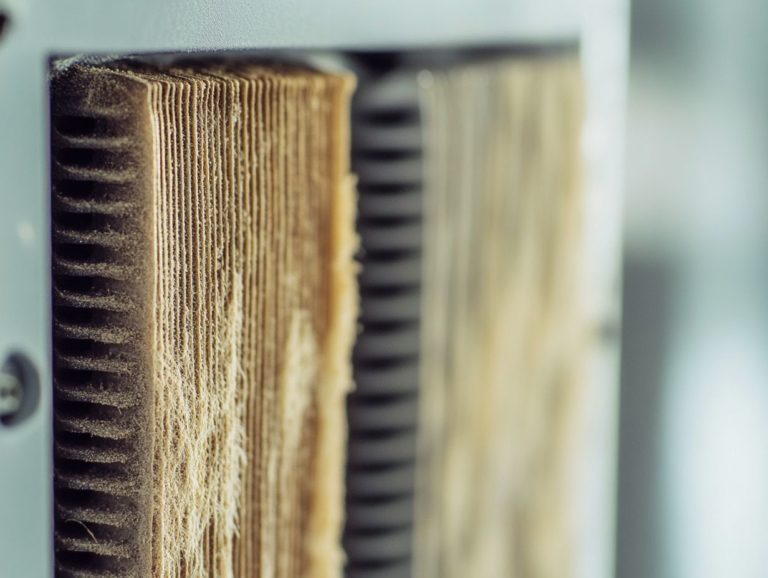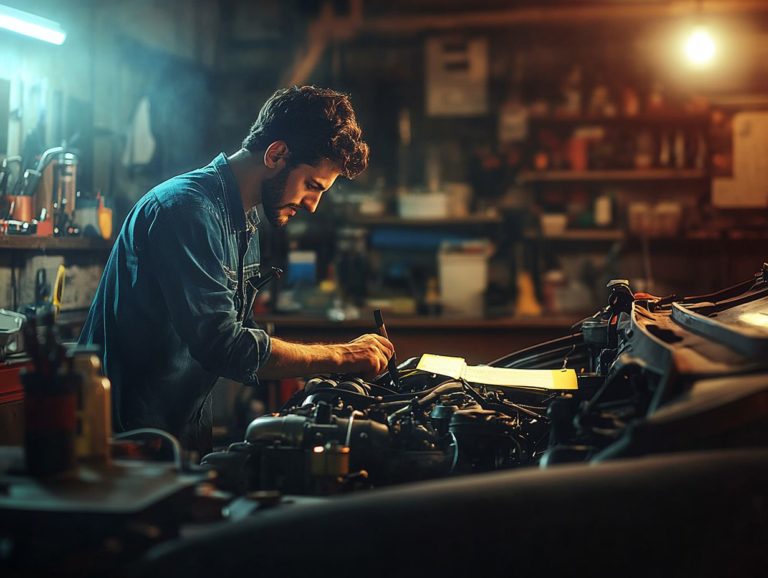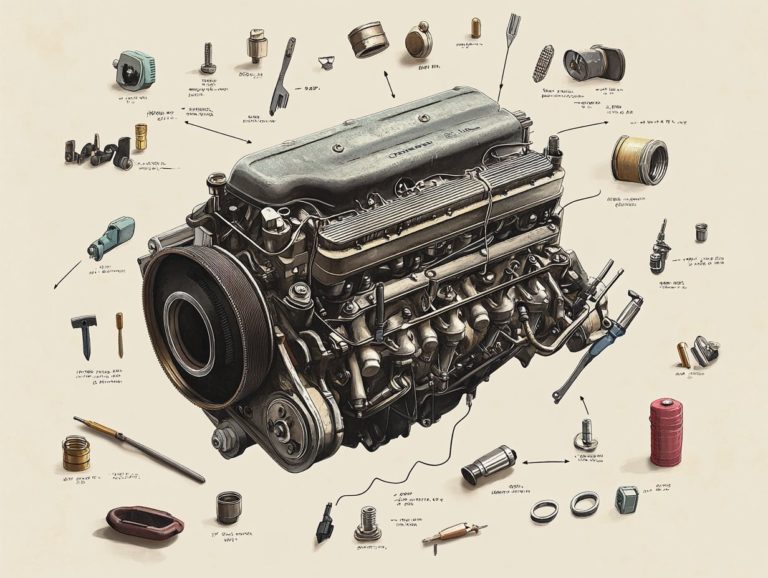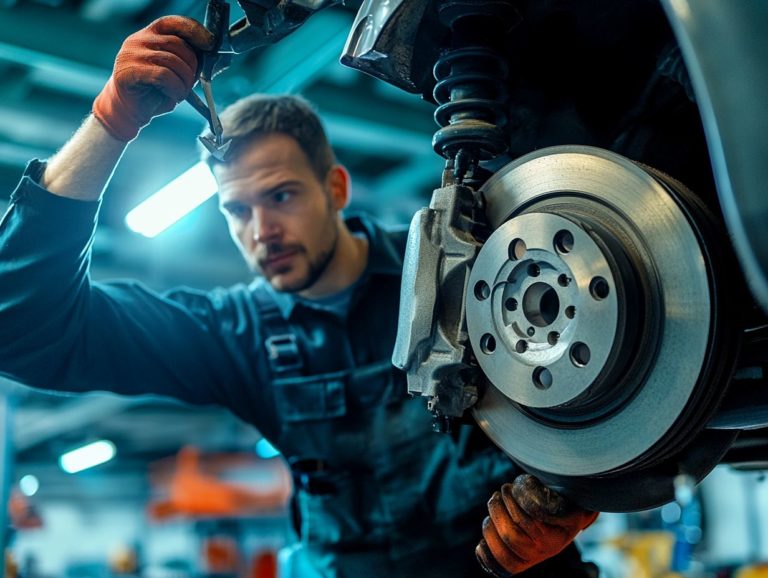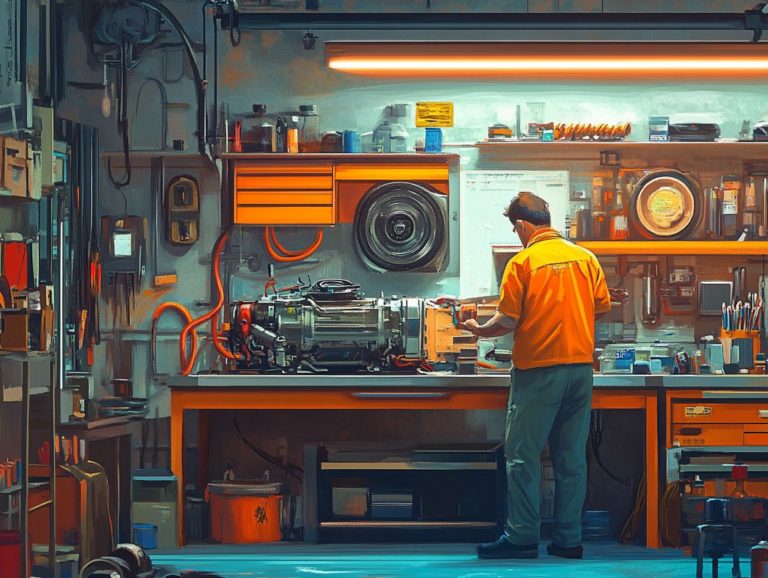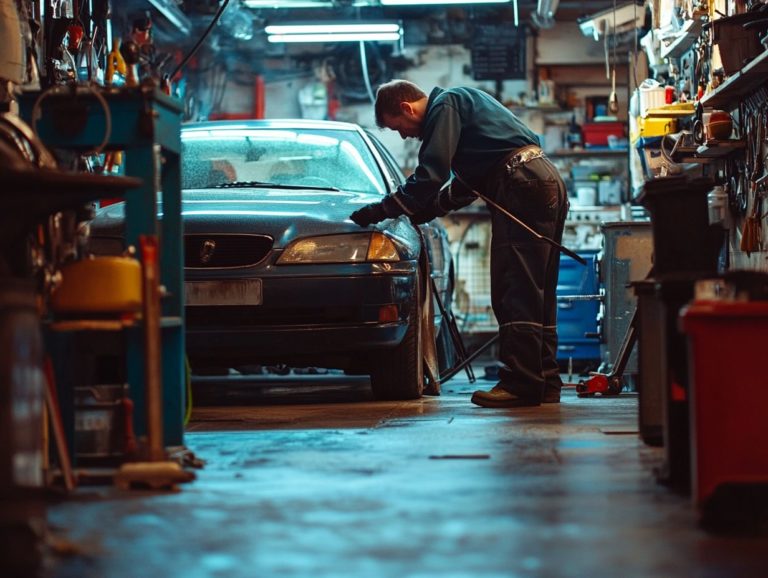The Importance of Regular Maintenance to Prevent Repairs
Regular maintenance is vital for ensuring that your home, vehicle, or equipment remains in peak condition.
Not only does it enhance performance, but it also helps you avoid expensive repairs that can sneak up on you. This guide delves into the importance of maintenance, identifies common issues and their associated costs, and offers practical tips for preventative care.
You ll also find guidance on crafting a manageable maintenance schedule and discover the long-term savings and benefits of being proactive. Don t wait let s dive into maintaining your investment now!
Contents
Key Takeaways:
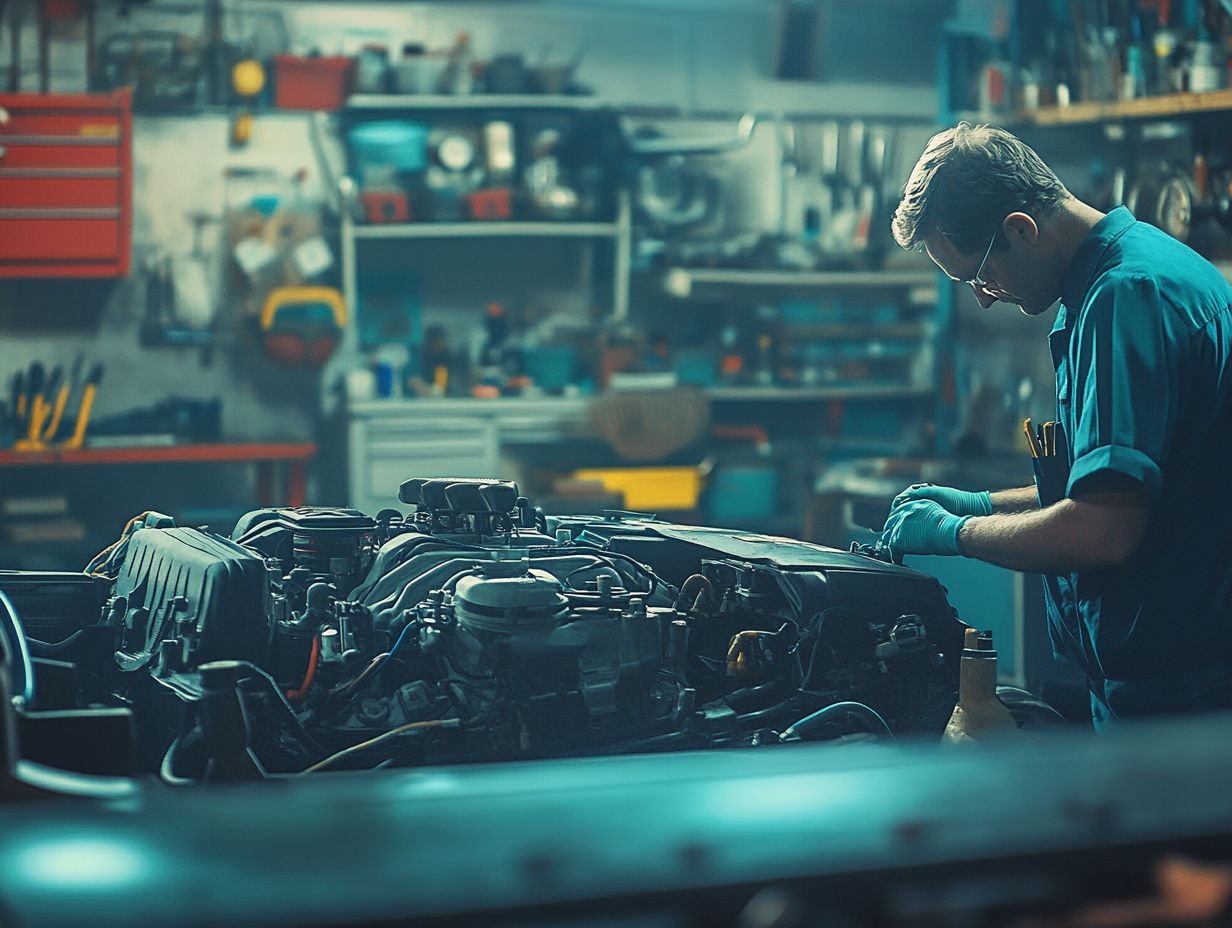
- Regular maintenance is crucial to prevent costly repairs in the long run.
- Common repairs and their associated costs can be avoided through consistent maintenance.
- Following best practices and creating a maintenance schedule can help prevent major repairs and save money.
The Importance of Regular Maintenance
Regular home maintenance is essential for homeowners who want to protect their property and enhance its value over time. By investing in routine maintenance tasks, you can effectively prevent costly damage and steer clear of expensive repairs that could detract from your home’s overall worth.
Embracing a maintenance program not only extends the lifespan of your critical assets but also showcases your dedication to homeownership. This allows you to enjoy a safe and impeccably maintained living environment.
Why Maintenance is Necessary
Maintenance is essential to prevent costly damage to your home and ensure that all systems operate seamlessly.
By regularly attending to various aspects of your residence, you can catch minor issues before they snowball into major headaches and extend the lifespan of your appliances and structures. When you adopt a preventive maintenance program taking care of minor issues before they become major problems you can systematically tackle necessary repairs, saving both time and money in the long run.
Simple tasks like cleaning gutters, inspecting roofs, and servicing heating, ventilation, and air conditioning (HVAC) systems can reduce the likelihood of unexpected breakdowns.
Neglecting these vital chores can trigger a cascade of problems from mold growth to structural damage that could lead to extensive and expensive repairs down the line.
Common Repairs and Costs
Gaining a clear understanding of common repairs and their associated costs is crucial for homeowners. This knowledge enables you to budget effectively and ensures the ongoing maintenance of your property.
Identifying Common Problems
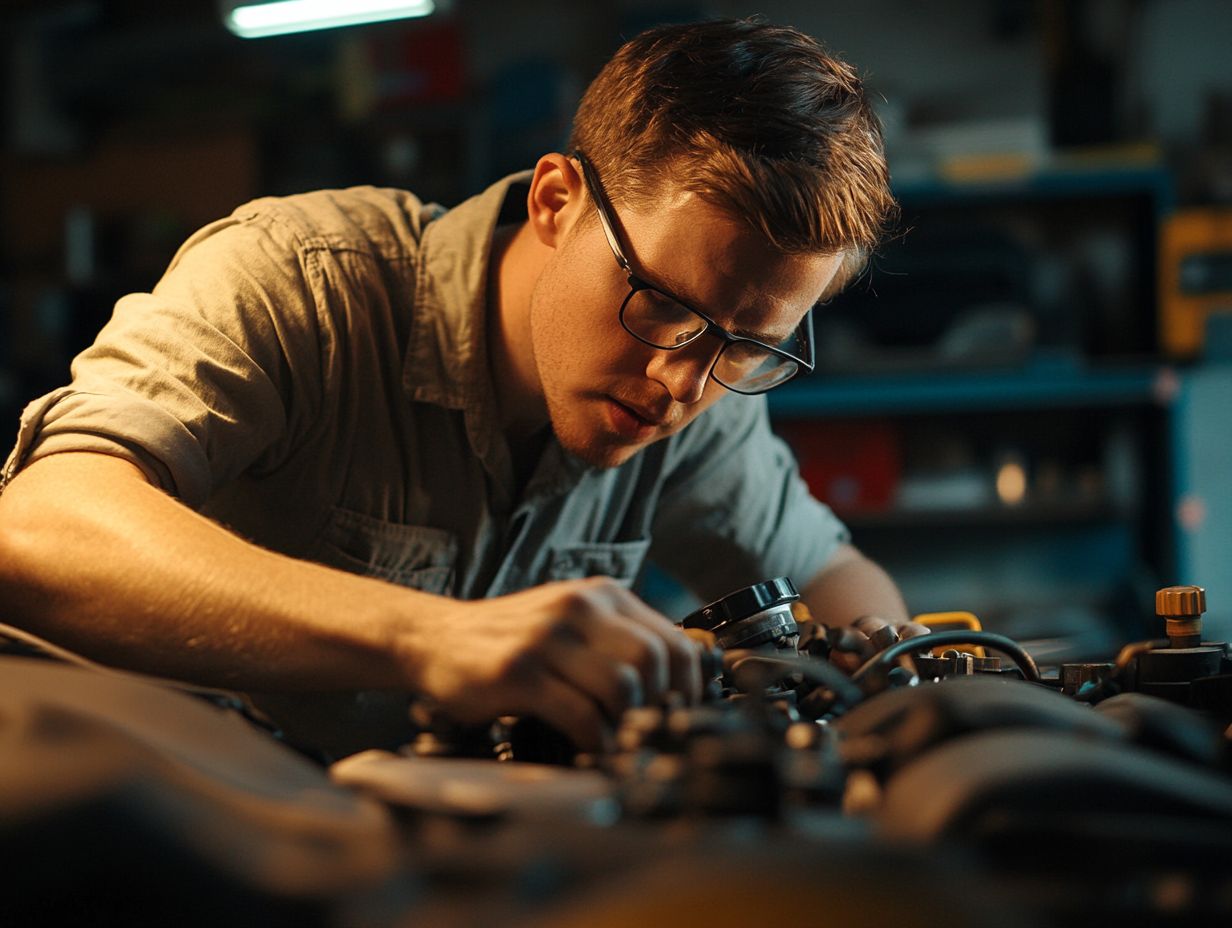
Identifying common problems in your home is the crucial first step toward effective maintenance.
By using comprehensive maintenance checklists and scheduling regular inspections, you can uncover potential issues long before they escalate into costly repairs. These proactive measures not only protect the integrity of your property but also enhance its value over time.
Engaging in simple tasks such as checking for leaks, cleaning gutters, and inspecting the roofing can significantly prevent water damage and other complications. Emphasizing routine maintenance ensures that every part of your home functions efficiently, ultimately creating a comfortable and safe living environment for everyone.
Costs of Repairs
Repair costs can fluctuate significantly based on the type and extent of damage. This is why it s essential to be proactive in your maintenance efforts.
Investing your time and resources into regular upkeep can often prevent minor issues from snowballing into major, costly repairs. The specific nature of the repairs be it plumbing, electrical, or structural plays a crucial role in determining the overall expenses.
Factors such as the age of your property, local labor rates, and the quality of materials you choose can dramatically impact costs. Consider preventive care strategies, like routine inspections and timely interventions, to mitigate the risk of hefty repair bills down the line.
By adopting a forward-thinking approach, you can safeguard your investment and maintain a comfortable living environment.
Preventative Maintenance Tips
By implementing effective preventive maintenance tips, you can boost your home’s lifespan and enjoy a more comfortable living space, all while minimizing costly repairs that can add up over time.
Best Practices for Preventing Repairs
Adopting best practices for home maintenance ensures that your property remains in excellent condition while significantly reducing the likelihood of costly repairs.
Regularly cleaning your gutters is crucial. Neglecting them can lead to serious issues like water damage, mold growth, and undue wear on your foundation. It s wise to check them at least twice a year, particularly before the heavy rain seasons roll in.
You should also prioritize the maintenance of your heating and cooling system. Changing the filters every three months not only enhances efficiency but also improves air quality. Scheduling professional inspections annually can help detect potential issues early, ultimately saving you both time and money.
By incorporating these straightforward yet effective practices, you can greatly extend the lifespan of your property and create a safe, comfortable environment for yourself and your loved ones.
Creating a Maintenance Schedule
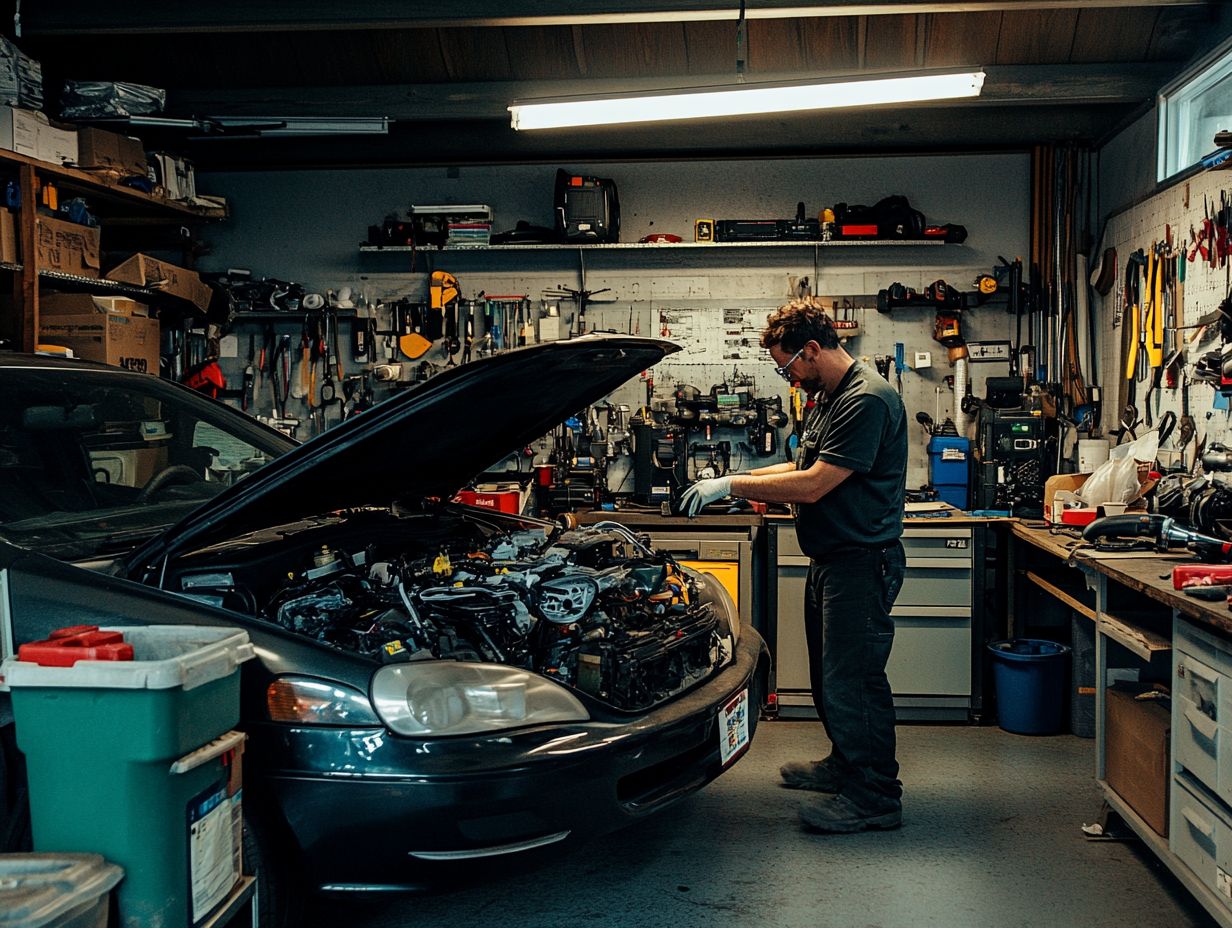
Establishing a well-structured maintenance schedule is crucial for homeowners like you. It enables you to systematically manage property maintenance tasks and ensures that you never overlook essential upkeep.
This proactive approach not only preserves the integrity of your home but also enhances its long-term value.
How to Plan and Stick to a Schedule
Planning and adhering to a maintenance schedule requires you to organize tasks, prioritize critical assets, and ensure timely execution all to prevent potential issues.
For homeowners, crafting an effective maintenance calendar is essential for protecting your property’s value and functionality. Start by pinpointing the most urgent tasks, such as inspecting roofs, cleaning gutters, and checking heating and cooling systems.
It’s wise to categorize these tasks according to urgency and seasonal needs, allowing for a seamless flow throughout the year. Managing an inventory of necessary supplies simplifies the process and eliminates last-minute scrambles.
To stay committed to your timetable, consider setting reminders, involving family members in responsibilities, or utilizing mobile apps designed to track home maintenance. Consistency and thoughtful planning will lead you to a well-maintained property.
Benefits of Regular Maintenance
The advantages of regular maintenance reach well beyond simply preserving your home s condition; they also enable you to save money and elevate your property s value over time.
Long-Term Savings and Benefits
Long-term savings are one of the most significant benefits of regular maintenance. It reduces downtime and minimizes the likelihood of unexpected repairs.
By investing in routine upkeep, you can ensure your property remains in top condition, ultimately leading to fewer costly emergencies. Establishing maintenance service agreements is crucial; it effectively schedules necessary checks and repairs before minor issues escalate into major headaches.
Regular maintenance not only safeguards the structural integrity of your home but also enhances safety compliance, keeping you aligned with current regulations and standards. This proactive approach diminishes the risk of accidents, preventing potential liabilities and fostering a secure environment for both residents and visitors alike.
Frequently Asked Questions
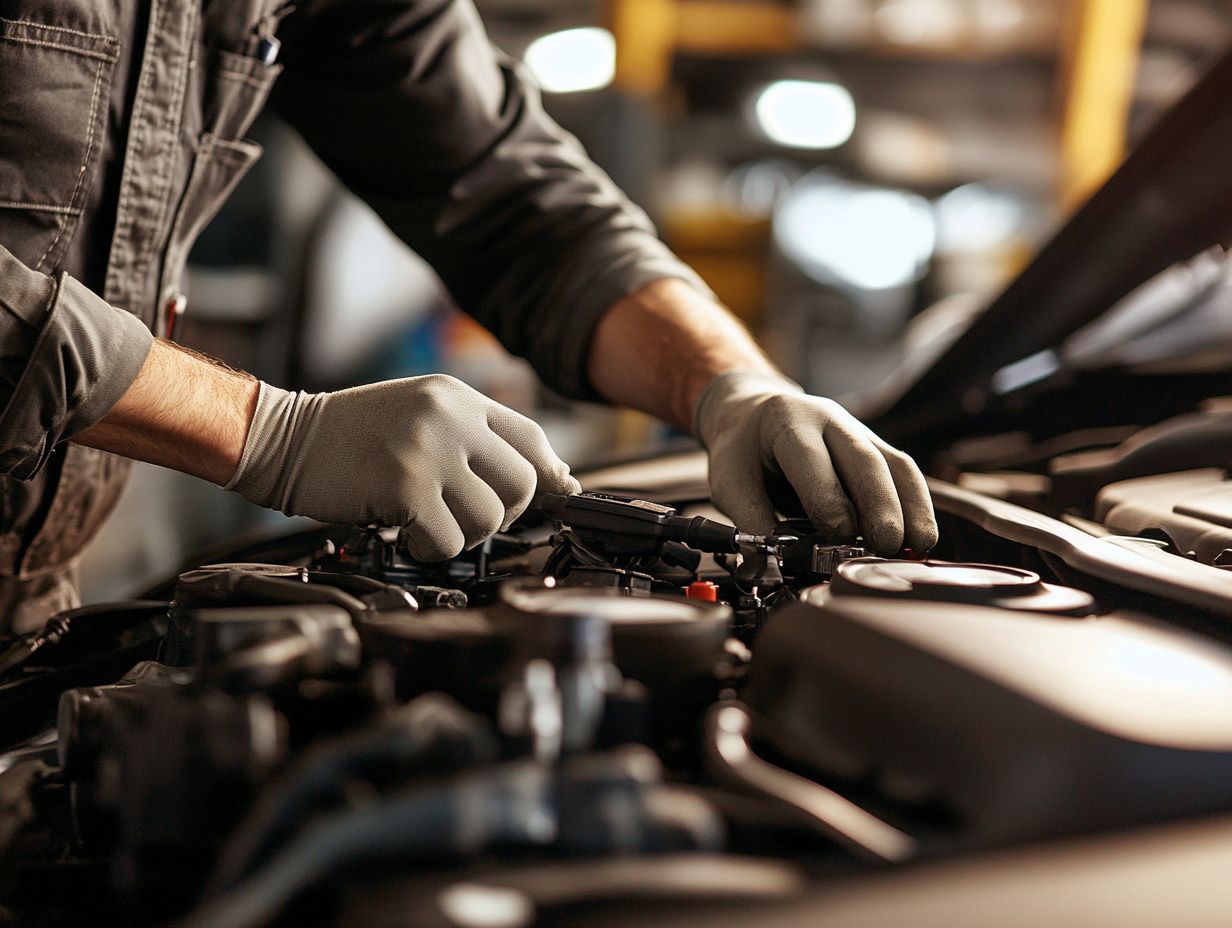
Why is regular maintenance important to prevent repairs?
Regular maintenance helps identify and address potential issues before they turn into expensive repairs. By keeping your vehicle, home, or equipment in good condition, you can avoid unexpected breakdowns and save money in the long run.
How often should I perform regular maintenance?
The frequency of maintenance depends on the item type and its usage. For vehicles, follow the manufacturer’s maintenance schedule.
For homes, perform regular maintenance at least twice a year.
What are the benefits of regular maintenance?
Regular maintenance prevents costly repairs and extends the lifespan of your belongings. Understanding the importance of regular servicing can improve performance and efficiency, saving you money on energy bills.
What items require regular maintenance?
Common items needing maintenance include vehicles, heating and cooling systems, household appliances, lawn equipment, and plumbing and electrical systems.
Can I perform regular maintenance myself?
Yes, you can do basic tasks like changing filters and checking fluid levels. For complex maintenance, hire a professional to ensure safety and correctness.
What happens if I neglect maintenance?
Neglecting maintenance can lead to costly repairs and safety hazards. Regular maintenance is a small investment that saves you from major headaches later on.

